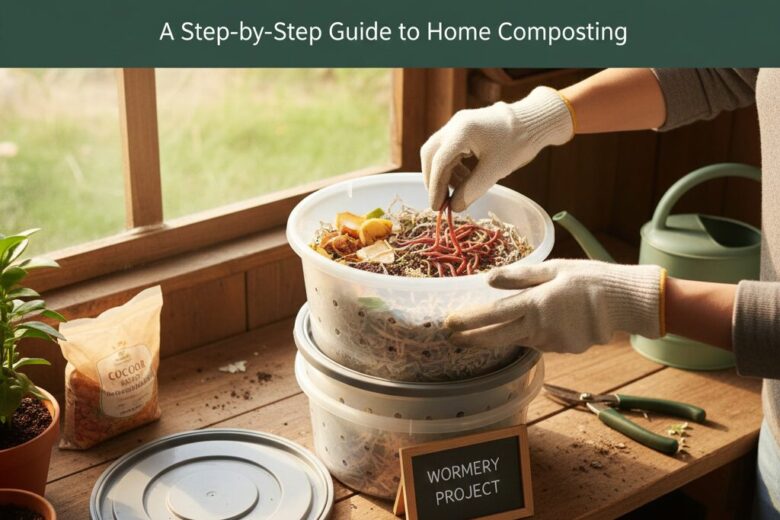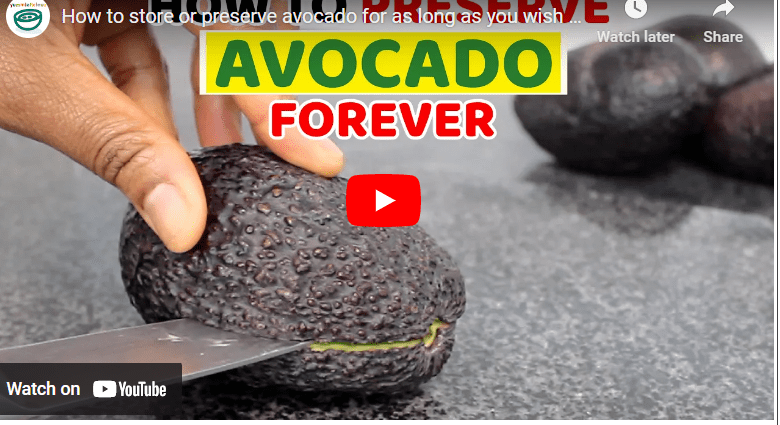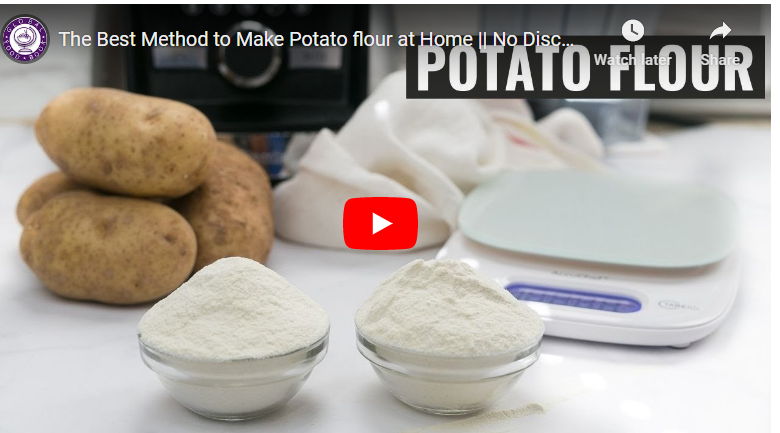Garlic is a versatile and flavorful ingredient that is widely used in various cuisines all around the world. It adds depth and complexity to many dishes, and its numerous health benefits make it a staple in many households.
However, fresh garlic has a limited shelf life, and it can spoil quickly if not stored properly. As a result, it’s important to know how to preserve garlic to ensure that it remains fresh and flavorful for longer periods.
To preserve garlic for long time storage, start by selecting the freshest garlic cloves possible. Peel off the skin and rinse the cloves in cold water. Cut the cloves in half and place them in a shallow container with 1/2 inch of olive oil, ensuring the cloves are completely covered. Store the container in a cool, dry place away from direct sunlight. Change the oil every two weeks to ensure freshness.
How To Preserve Garlic Step By Step Guide
Preserving garlic not only helps to extend its shelf life but also offers the added benefit of making it more convenient to use. With preserved garlic, you can easily add garlic to your favorite recipes without having to peel and chop it every time you cook.
Also, preserved garlic is a great way to enjoy the flavor of garlic during seasons when fresh garlic is not available or when you want to enjoy garlic out of season.
Read Also: How To Preserve Aloe Vera For Long-Time Storage
There are several methods to preserve garlic, and it’s important to choose the one that best suits your needs. Here are some of the most common methods for preserving garlic:
Freezing Method
Freezing is a popular method for preserving garlic. To freeze garlic,
- Peel, chop, or puree the garlic into small pieces or puree it in a food processor.
- Place the garlic in an airtight container or freezer-safe bag.
- Remove as much air as possible from the container or bag to prevent freezer burn.
- Label the container or bag with the date and store it in the freezer.
Drying Method
Drying is another popular method for preserving garlic. To dry garlic:
- Slice the garlic cloves or hang the garlic bulbs in a dry, well-ventilated area until they are completely dry.
- You can also use a dehydrator or oven to dry garlic. If using an oven, preheat it to 140-150°F and place the garlic on a baking sheet lined with parchment paper.
- Dry the garlic until it is crisp and completely dry.
- Store the dried garlic in an airtight container in a cool, dry place.
Read Also: How To Preserve Apple for Long-Time Storage
Pickling Method
Pickling garlic involves submerging garlic cloves in vinegar or brine. This method helps to preserve the garlic and add flavor to it. To pickle garlic:
- Peel the garlic cloves and place them in a sterilized jar.
- Mix vinegar, salt, sugar, and any desired herbs and spices in a saucepan and heat until boiling.
- Pour the vinegar mixture over the garlic cloves in the jar, making sure the garlic is completely submerged.
- Let the jar cool to room temperature, then cover it with a lid and store it in the refrigerator.
Read Also: How To Preserve Ginger For Long Time Storage
Storing in oil Method
Storing garlic in oil is another popular method for preserving garlic. To store garlic in oil:
- Peel and chop the garlic cloves and place them in a sterilized jar.
- Cover the garlic with oil, making sure the garlic is completely submerged.
- Store the jar in the refrigerator and use within a week.
- Alternatively, you can freeze garlic stored in oil in ice cube trays, then transfer the frozen cubes to a freezer-safe bag for long-term storage.
Read Also: How To Preserve Avocado For Long Time Storage
Benefits of Preserving Garlic
Preserving garlic has many benefits, including:
1. Extended Shelf Life
One of the most obvious benefits of preserving garlic is that it can last much longer than fresh garlic. Depending on the preservation method used, garlic can be stored for months or even years.
2. Convenient Availability
Preserving garlic allows you to have this flavorful ingredient on hand whenever you need it. You won’t have to worry about running out of fresh garlic or making a last-minute trip to the grocery store.
Read Also: How To Preserve Beans For Long Time Storage
3. Versatility
Preserved garlic can be used in a variety of dishes, including soups, stews, marinades, and sauces. It can also be added to salad dressings, roasted vegetables, and even baked goods.
4. Enhanced Flavor
Preserving garlic can actually enhance its flavor. For example, roasted garlic has a sweet, nutty flavor that is more subtle than raw garlic. Garlic that is preserved in vinegar or wine can also take on the flavors of those liquids, adding a new dimension of flavor to your dishes.
5. Health Benefits
Garlic is known for its numerous health benefits, including its ability to boost the immune system, lower cholesterol levels, and reduce the risk of heart disease. Preserved garlic retains many of these health benefits, making it a great addition to a healthy diet.
Read Also: How To Preserve Cabbage For Long Storage
Factors that influence garlic preservation
Factors that influence garlic preservation are essential to consider when choosing a method to preserve garlic. These factors include temperature, moisture, exposure to air, and the type and quality of garlic being used.
1. Temperature
Temperature plays a critical role in the preservation of garlic. Garlic should be kept in a cool, dry place to maintain its quality and flavor. High temperatures can lead to spoilage and mold growth, while low temperatures can cause the garlic to sprout. When freezing garlic, it’s important to ensure that the temperature of the freezer is consistent to avoid freezer burn.
2. Moisture
Moisture can cause garlic to spoil quickly. Garlic should be stored in a dry environment to prevent mold and bacteria growth. When drying garlic, it’s important to remove as much moisture as possible to avoid spoilage. Pickled garlic should be completely submerged in the brine to prevent mold growth.
Read Also: How To Preserve Carrot For Long Time Storage
3. Exposure to air
Garlic should be stored in an airtight container to prevent exposure to air, which can cause it to dry out and lose its flavor. When storing garlic in oil, it’s important to ensure that the garlic is completely covered in oil to prevent exposure to air.
4. Type and quality of garlic
The type and quality of garlic used can also impact the preservation process. Fresh, high-quality garlic will preserve better than garlic that is old or damaged. When selecting garlic for preservation, choose bulbs that are firm and free of blemishes or mold.
Common mistakes to avoid when preserving garlic
Preserving garlic can be a delicate process, and there are several common mistakes to avoid. Understanding these mistakes can help you ensure that your garlic stays fresh and flavorful for as long as possible.
Read Also: How to Preserve Cocoa for Long Time Storage
1. Air Exposure
One of the most common mistakes in garlic preservation is exposing it to air. Garlic should be stored in an airtight container to prevent oxidation, which can cause the garlic to lose its flavor and aroma. When storing garlic in oil, make sure the garlic is completely submerged in the oil to prevent exposure to air.
2. Moisture
Moisture is another factor that can spoil garlic. Garlic should be stored in a cool, dry place to prevent mold and bacteria growth. When pickling garlic, it is essential to ensure that the garlic is completely submerged in the vinegar or brine to prevent mold growth.
3. Freezer Burn
Freezing is a popular method for preserving garlic. However, freezer burn can occur if the garlic is not stored properly. Make sure the garlic is stored in an airtight container to prevent moisture and air exposure. Additionally, use freezer-safe bags to avoid freezer burn.
Read Also: How To Preserve Coconut For Long-Time Storage
4. Quality of Garlic
The quality of garlic used in preservation can also impact the final product. Fresh, high-quality garlic will preserve better than garlic that is old or damaged. Always choose garlic that is firm and free of blemishes or mold.
5. Sterilization
Proper sterilization of containers is crucial when storing garlic in oil. Sterilize the containers and utensils in boiling water for at least 10 minutes to prevent bacterial growth.
Best Practices for Preserving Garlic
Preserving garlic is a great way to extend its shelf life and ensure that you always have this flavorful ingredient on hand for your favorite recipes. Here are some best practices for preserving garlic:
Read Also: How To Preserve Cucumber For Longer Storage
1. Use Fresh Garlic
Garlic is at its peak flavor when it is fresh. Use fresh garlic for the best results when preserving.
2. Clean And Sanitize Equipment
When preserving garlic, it’s important to use clean equipment to prevent the growth of bacteria. Wash all jars, lids, and utensils with hot, soapy water and sanitize them in boiling water for at least 10 minutes.
3. Choose The Right Preservation Method
There are different methods for preserving garlic, including freezing, drying, pickling, and storing in oil. Choose the method that best fits your needs and the type of dish you plan to make.
Read Also: How To Preserve Flowers
3. Follow Recipe Instructions
When using a recipe to preserve garlic, be sure to follow the instructions carefully. This will ensure that the garlic is preserved properly and safely.
4. Label And Date Containers
When storing preserved garlic, label the container with the type of garlic and the date it was preserved. This will help you keep track of your inventory and ensure that you use the garlic before it goes bad.
5. Store In A Cool, Dark Place
Proper storage is important for preserving garlic. Store preserved garlic in a cool, dark place such as a pantry or cupboard. Avoid storing garlic in direct sunlight or in a warm, humid environment.
Read Also: How To Preserve Fresh Pepper For Long-Time Storage
Tips for selecting high-quality garlic
Selecting high-quality garlic is important to ensure that your preserved garlic is flavorful and delicious. Here are some tips for selecting the best garlic:
1. Look For Firm Bulbs
When selecting garlic, choose bulbs that are firm and feel heavy for their size. Avoid bulbs that are soft, mushy, or have visible mold.
2. Check The Skin
The skin of the garlic should be papery and dry. Avoid bulbs with skin that is excessively dry or cracked.
3. Consider The Variety
There are many different varieties of garlic, each with its own flavor profile. Consider the recipe you will be using the garlic for and choose a variety that complements the other ingredients.
Read Also: How to Preserve Tomatoes for Long Time Storage
4. Choose Fresh Garlic
Garlic is at its peak flavor when it is fresh. Look for garlic that has been recently harvested and hasn’t been stored for too long.
5. Smell The Garlic
Give the garlic a sniff to check for a strong, pungent aroma. If the garlic doesn’t smell strongly, it may not be fresh or flavorful.
6. Buy From A Reputable Source
Choose a trusted supplier to ensure that the garlic is of high quality and hasn’t been treated with chemicals or pesticides.
Note that by following these tips, you can select high-quality garlic that will result in flavorful and delicious preserved garlic. Remember that the quality of your ingredients is key to producing high-quality dishes.
Tips for Storing Garlic after Preservation
After preserving garlic, it’s important to store it properly to maintain its flavor and quality. Here are some tips for storing garlic after preservation
1. Store In A Cool, Dry Place
Like fresh garlic, preserved garlic should be stored in a cool, dry place. To avoid the growth of mold and bacteria, this will be useful.
2. Use Airtight Containers
When storing preserved garlic, use airtight containers to keep out air and moisture. Mason jars, plastic containers with tight-fitting lids, or vacuum-sealed bags are all good options.
3. Label And Date Containers
Be sure to label the containers with the type of garlic and the date it was preserved. This will help you keep track of your inventory and ensure that you use the garlic before it goes bad.
4. Keep Away From Direct Sunlight
Direct sunlight can cause the garlic to degrade quickly. Store your preserved garlic in a dark cupboard or pantry.
5. Use Within A Reasonable Time Frame
While preserved garlic has a longer shelf life than fresh garlic, it still has a limited lifespan. Use your preserved garlic within a reasonable time frame to ensure the best flavor and quality.
How to Use Preserved Garlic
Preserved garlic can be used in numerous types of cuisine. Here are some tips for using different types of preserved garlic:
1. Frozen Garlic
Frozen garlic is great for adding to soups, stews, and sauces. Simply remove the frozen garlic from the container or bag and add it directly to your dish. There’s no need to defrost it first.
2. Dried Garlic
Dried garlic is best used in dishes that require a long cooking time, such as roasted meats, soups, and stews. Simply add the dried garlic to your dish and let it rehydrate as it cooks.
3. Pickled Garlic
Pickled garlic is a great addition to salads, sandwiches, and charcuterie boards. Simply remove the garlic cloves from the jar and use them as desired.
4. Garlic Stored In Oil
Garlic stored in oil can be used as a flavorful addition to salads, pasta, and roasted meats. Simply remove the garlic from the jar and use it as desired. Be sure to use clean utensils and containers to prevent bacterial growth.
Note that when using preserved garlic, keep in mind that the flavor may be more intense than fresh garlic, so you may want to use it sparingly at first and adjust to taste. Also, be aware of any added flavors from the preservation process, such as the tanginess from pickling or the mild sweetness from storing in oil.
Risk of Preserving Garlic
While preserving garlic is a great way to extend its shelf life and ensure that you always have this flavorful ingredient on hand, there are some risks associated with the process. Here are some risks to be aware of when preserving garlic:
1. Botulism
Garlic that is preserved in oil or butter can be at risk of developing botulism, a potentially deadly form of food poisoning caused by a toxin produced by the bacterium Clostridium botulinum. This is because the bacterium thrives in low-oxygen environments, such as those created by oil or butter. To reduce the risk of botulism, always follow a trusted recipe and be sure to store the preserved garlic in the refrigerator.
2. Mold Growth
Preserved garlic that is not properly stored can be at risk of developing mold, which can cause food spoilage and illness. To reduce the risk of mold growth, store preserved garlic in a cool, dry place and use airtight containers.
3. Cross-Contamination
When preserving garlic, it’s important to use clean equipment and avoid cross-contamination. This means washing all utensils and jars thoroughly with hot, soapy water and sanitizing them before use.
4. Quality Degradation
While preserved garlic can last longer than fresh garlic, its quality can degrade over time. Be sure to use your preserved garlic within a reasonable time frame to ensure the best flavor and quality.
Conclusion
Preserving garlic is a simple yet effective way to prolong its shelf life and ensure its availability for use in various culinary applications. By following the recommended methods such as storing in a cool, dry, and well-ventilated area, freezing, or using preservation techniques like pickling, individuals can enjoy the distinct flavor and health benefits of garlic for an extended period.



